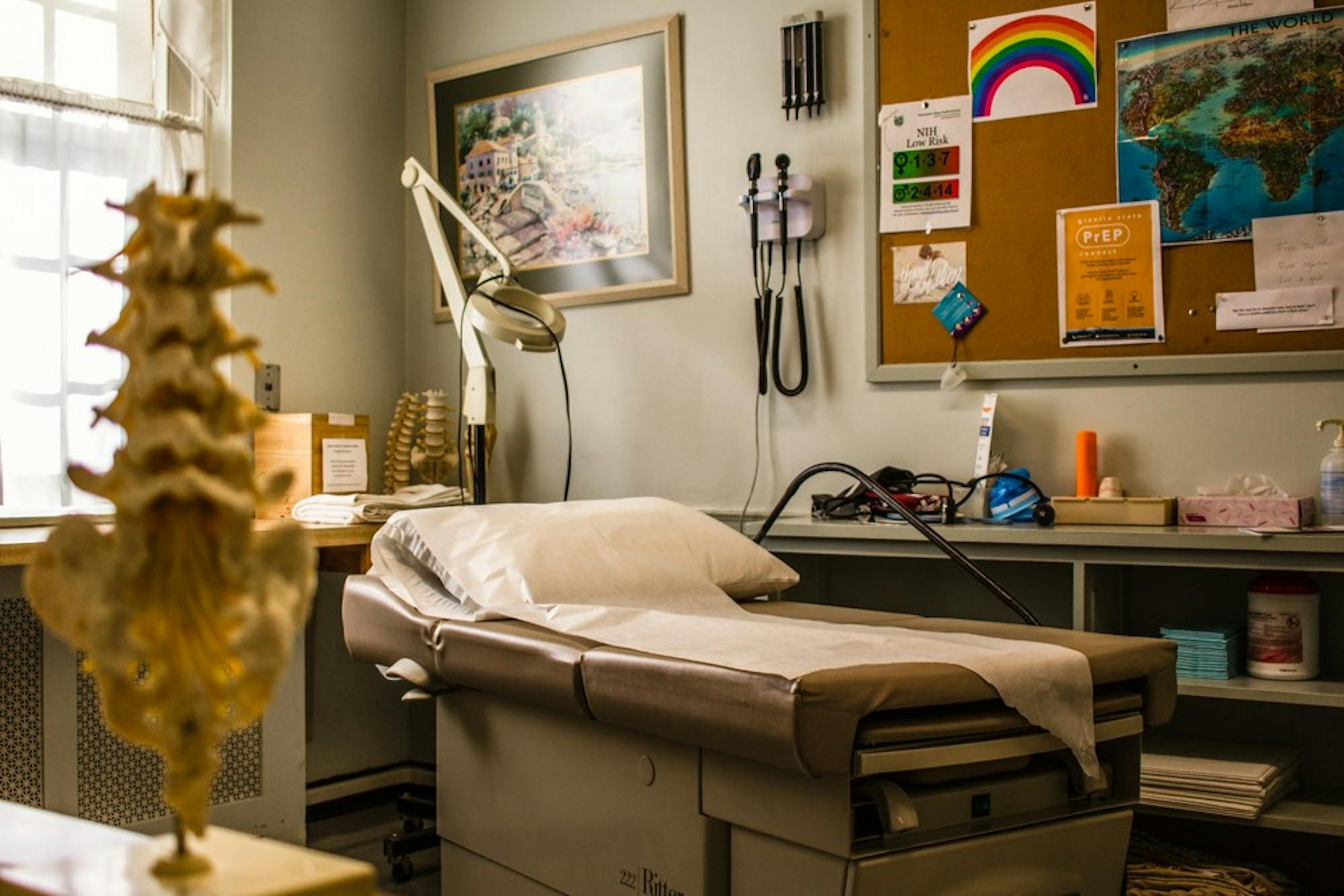While Hand, Foot and Mouth Disease is typically common among children, the illness has taken a foothold on the College’s campus.
Over 50 students have been admitted to Dick’s House, according to College health service director Mark Reed. At least one student was admitted to the Dartmouth-Hitchcock Medical Center, although the student was released soon after admittance, Reed said, adding that numerous other students may also be infected without having visited the on-campus health center.
The disease, often referred to as HFMD, is caused by the coxsackievirus and is most common in children under the age of five, though adults are also susceptible to the disease.
The virus is transmitted through bodily fluids such as saliva or mucus. After initial infection, the virus has an incubation period of three to six days, during which the host does not exhibit symptoms but can still transmit the disease to other people.
Common symptoms of the disease include fever, chills, loss of appetite and a sore throat.
“[I had] a super sore throat,” said Sunbir Chawla ’21, a student who is recovering from HFMD. “Eating food was definitely pretty hard.”
As the disease’s name suggests, many infected people will also develop blisters or sores in their mouth, on the palms of their hands or on the bottom of their feet.
According to Reed, there is no vaccine or treatment for HFMD aside from symptomatic treatment to improve comfort. Symptoms typically resolve within seven to 10 days, he said.
Reed added that despite the discomfort and inconvenience posed by symptoms of HFMD, many of those infected will experience milder symptoms, while some people may not exhibit any symptoms of the disease at all.
“We have had a few students who have felt uncomfortable enough to stay overnight in the infirmary, but we haven’t had any overnight stays in the infirmary in over a week,” Reed said.
Greek houses with confirmed cases of HFMD have also taken measures to prevent the virus from spreading.
Alpha Chi Alpha fraternity president Fisher Katlin ’19 said, after consulting an epidemiologist, he decided to shut down the fraternity after 10 brothers were diagnosed with HFMD.
“[The incubation period] made it impossible to know how many people had the disease,” he said. “Out of 93 brothers, 10 let me know that they had the disease.”
To prevent the disease from spreading within the fraternity and to the rest of campus, Alpha Chi canceled its chapter meeting, something that the house has never done before, Katlin said.
The fraternity also canceled or rescheduled an a capella show and social events, including their semi-formal.
“A lot of people saw these actions as alarmist on my part,” he said. “... I didn’t want Alpha Chi to be responsible in any way for spreading this disease to the rest of campus.”
Katlin added that Alpha Chi was “never actually quarantined.”
Despite the attention that HFMD has garnered across campus, Reed said the disease is not significantly more contagious than the common cold.
“Fortunately it isn’t a very serious disease,” he said. “I don’t think [HFMD] stands out in terms of severity … And in terms of numbers, while 50 students is a lot, it’s a pretty small percentage of the student body.”
Nevertheless, HFMD has also caused infected students to miss classes.
Elizabeth Whiting ’21 said she missed three days of classes because of HFMD. Whiting said she was diagnosed with both HFMD and strep throat earlier this term.
“It really took the life out of me … I went to one lecture and felt terrible,” she said.
Dick’s House has been working with Facilities Operations and Management to sanitize public spaces, such as shared utensils in dining areas, public library computers and door knobs on campus more frequently, according to Reed. To prevent further spread of the disease, Reed recommended frequent hand-washing with soap and water and avoiding hugging or sharing utensils.
Infected students have also taken measures to avoid infecting their classmates.
“For the one lecture I did go to, I sat away from the rest of my classmates,” Whiting said. “I’ve also avoided [the Class of 1953 Commons] and stayed in a hotel room with my parents.”
Chawla said he plans to miss classes in order to not infect other people with the virus.
“I also sanitize my hands a lot throughout the day,” Chawla said. “As soon as I was feeling even slightly sick, I told my roommates.”




